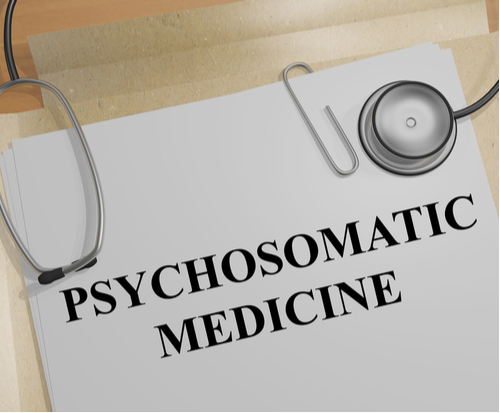Mind and Emotions: How Psychosomatics Affects Your Body
The word “psychosomatic” is made of two Greek words: psykhē (mind) and sōma (body) and means “mind and body connected to each other.” A psychosomatic disorder is an illness caused or aggravated by psychological factors and can lead to feeling physical pain. Here is how it works.

The close connection of mind and emotions was noticed even by ancient Greek physicians, for example, Galen and Soranus of Ephesus in the I century BC. Until recently, modern Western medicine was oriented towards treating bodily and mental disorders separately. Only several decades ago, doctors started to pay close attention to emotional factors playing a specific role in the development of the most organic diseases. They have also noticed that patients’ physical symptoms are related to many interrelated factors, including biological, psychological, and ecological ones.
According to the research “Psychosomatic disorder pathology”, the emotions affect our susceptibility to injuries, the disturbing elements of the environment, susceptibility to infections, the severity of diseases, or the speed of body recovery after illness.
The physical symptoms caused by psychological factors are also known as somatization or somatoform disorders. For example, under heavy stress, an individual can feel genuine chest pain without any physical causes for this pain. These symptoms are produced by increased activity of nerve impulses that your body sends to the body parts.
How Emotions Affect Your Body
In the study “Psychosomatic Disorders“, the scientists have proven that worries (including worries about own health conditions) can aggravate the symptoms of psoriasis, eczema, and gastric ulcer, as well as crease blood pressure. Another research, “An Overview of Psychosomatic Illness”, mentions that women under stress complain about fatigue, even when having enough sleep, as well as about bloating, irritability, changes in the menstrual cycle, while men feel chest pains and have issues with libido. However, the neurologists warn that psychosomatic symptoms should not be taken lightly as such an approach may lead to their aggravation, as evidenced in the report “Hypochondria and psychosomatic illness: explaining a very real imaginary problem”. “Crying and laughing are a physical reaction to our emotions,” the neurologist, Suzanne O’Sullivan, said. “When we laugh, our diaphragm contracts, our breathing changes, the facial muscles contract, and tears start to pour from our eyes. It is such a little thing, but our bodily sensations change. If our bodies are capable of this, I wouldn’t understand why they would not be able to cause more extreme symptoms, for example, spasms, under more extreme circumstances.”
The British encyclopedia provides the following example of psychosomatic disorder: in a state of anger, an average person has higher blood pressure and breathing rate. When the reason for anger disappears, the physical symptoms leave. However, when the person feels aggressive regularly but cannot express it openly, the anger would not be visible on the outside, but all the rage symptoms would be in place. Besides, such a person may be unaware of what has caused an increased heart rate and start to worry about a symptom that has appeared from nowhere.
For children, it is even more challenging to express what they feel in words than for adults. For the former, the stress is often manifested by their bodies. For example, a child who has problems studying at school often has abdominal pains. He or she is often given leave from school or left at home. This is a good example of how important it is not to keep all your worries to yourself and speak them out. It is essential not only for children but also for adults and seniors. For the latter, the loneliness and sadness can lead to depression, which, in turn, may lead to a number of physical symptoms.
What Else Can Look Like a Disease But Turns out to Be Psychosomatics?

Heart Attack
Chest pain, tingling, and numbness of the left hand: typically, these symptoms are signs of heart issues. However, more and more often, after medical examinations, the doctors say that there are no physiological reasons for these sensations as all of them are caused by accumulated stress, lack of sleep and physical activity. Caution! In any case, if you experience these symptoms, you should consult a doctor.
Migraine
A severe headache can be caused by hundreds of reasons, but psychosomatics is one of them. Often, migraine is a common reaction to stress or lack of sleep.
Varicose
Of course, we talk about subjective sensations and not about visible signs. Many persons consider heaviness in the legs and dragging pain as the symptoms of the disease while the tests may show that everything is fine.
Gastrointestinal Disorders
You can have a proper diet but still have gastrointestinal issues. It can also be psychosomatics as diarrhea and spasms can be caused by stress, lack of sleep or a simple wish to stay at home if you need to go somewhere where you don’t want to be. According to scientists who have participated in the research “Treatment of Psychosomatic Disorders“, the diagnostics and assessment of the chances to treat psychosomatic disorders call for participation of not only neurologists and psychiatrists but also other physicians. It is essential to consider a multitude of factors, starting from patients’ age and ending with the structure of their personalities, duration of disease, intensity of symptoms and environmental factors (i.e., stress factors affecting the patients). According to doctors, the de-stigmatization of psychosomatic disorders plays a key role. Even though the mechanisms working in the stress-illness relationship are not thoroughly studied yet, the psychosomatic symptoms cannot be considered as imaginary. At the same time, a sensitive attitude can make a great difference.
Learn more about LONGEVITY
What to learn more? Read here:





